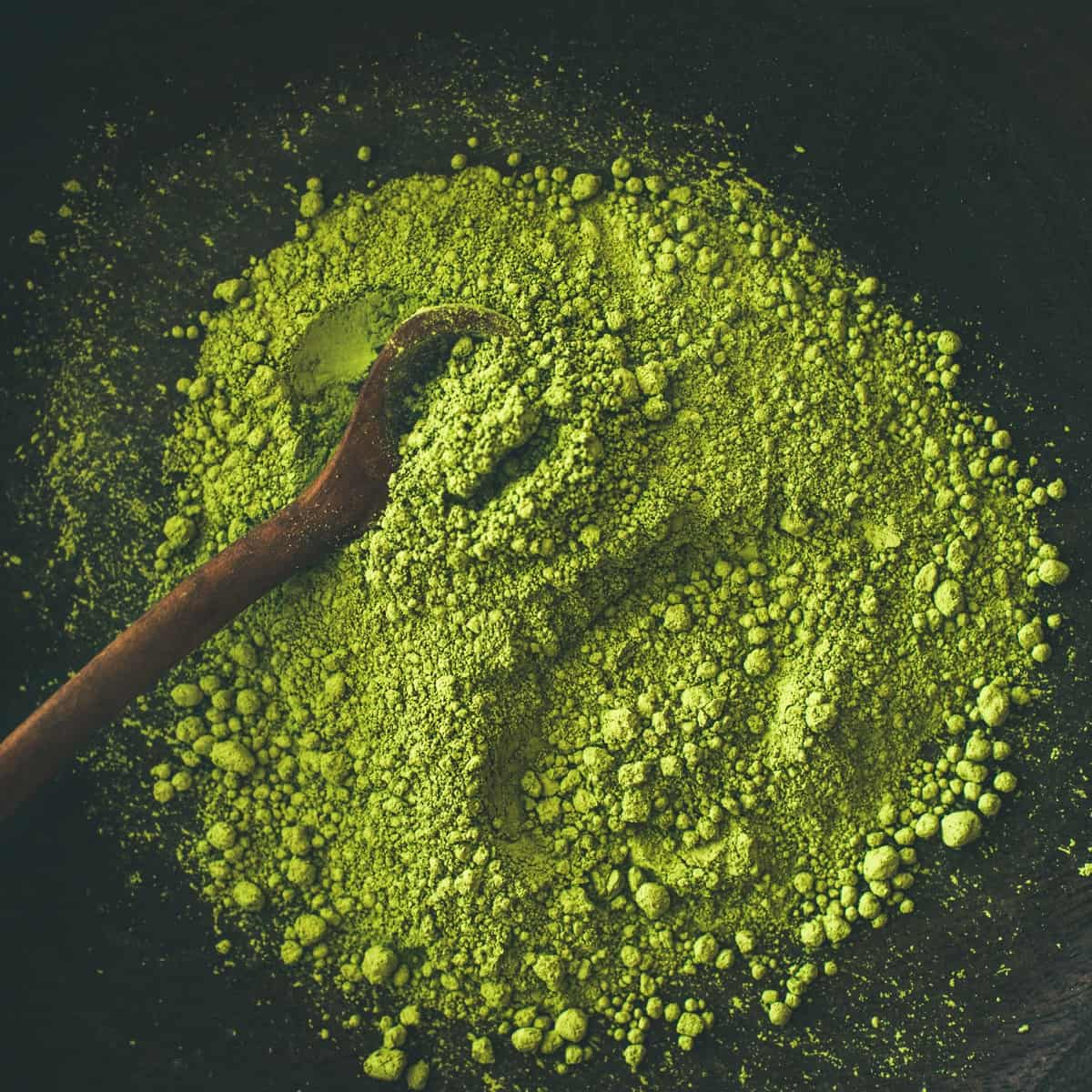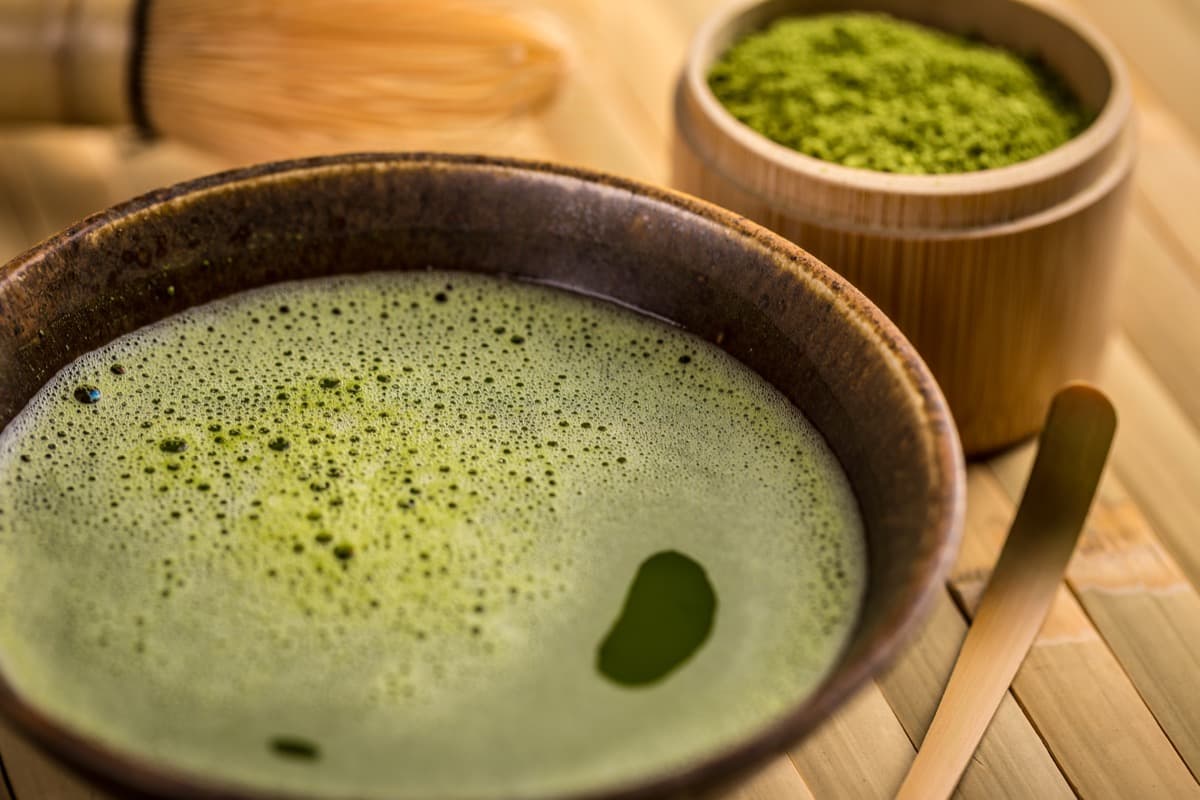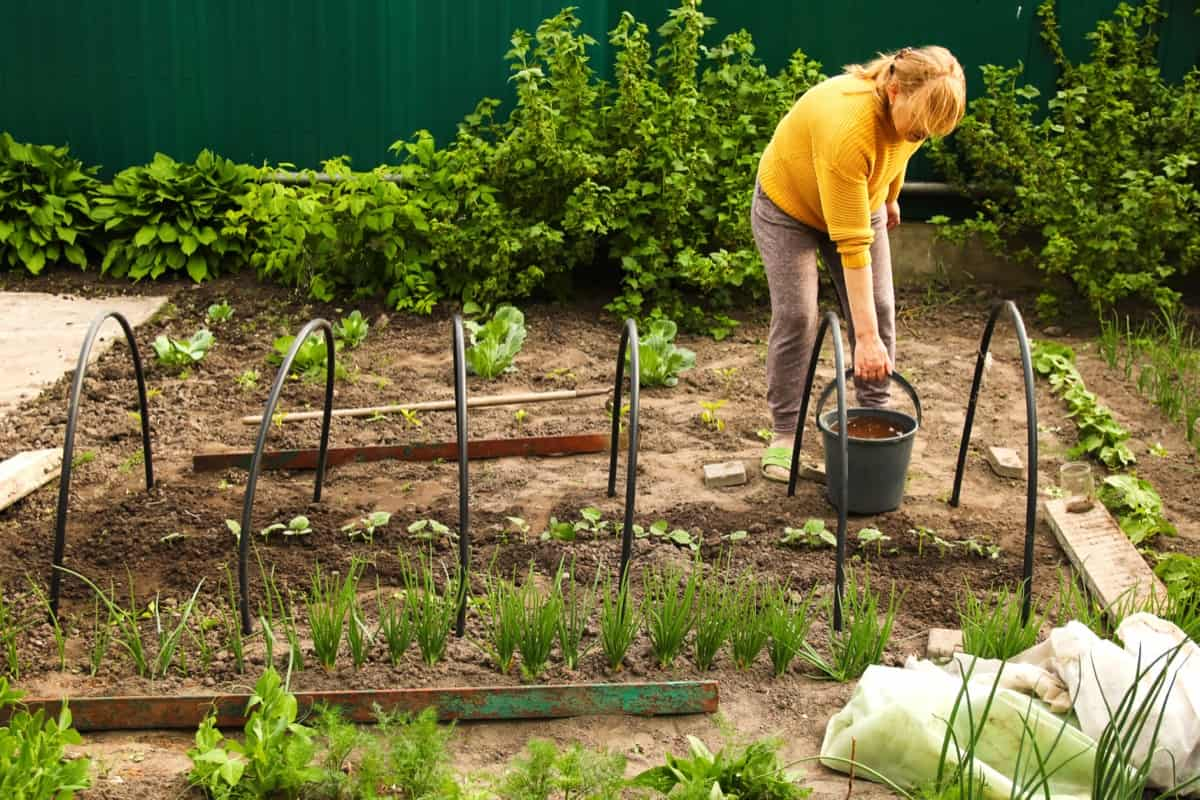Green tea in liquid form is as healthy and beneficial for several plants. When applied directly to the soil, green tea leaves act as a natural manure or fertilizer. It is used as an organic fertilizer for plants, inside and out. The acidic nature of green tea makes it particularly suitable for acid-loving plants like Roses, Tomatoes, and Blueberries.

Homemade DIY Green Tea Soil Fertilizer
What Are the Ingredients Needed to Make Green Tea Soil Fertilizer?
- Firstly, you’ll need green tea leaves. You can use loose-leaf or bagged green tea, whichever is more readily available.
- Next, you’ll need water. It’s best to use filtered or purified water to ensure no harmful chemicals are introduced into the soil. Additionally, warm water can help extract the beneficial compounds from the green tea leaves more effectively.
- If desired, you can add some additional organic matter to enhance the fertility of the soil. This could include things like compost or well-rotted manure.
- Combining these ingredients and following a simple brewing process, you can create your own homemade green tea soil fertilizer that will provide natural and organic benefits for your plants.
Recipe/Prepare Green Tea Soil Fertilizer at Home
- Green tea soil fertilizer is a simple and cost-effective way to nourish your plants naturally.
- Gather the ingredients needed: green tea leaves, water, and a container with a lid.
- Start by brewing the green tea. Boil water and steep the tea leaves for about 5 minutes. If using teabags, follow the instructions on the package. Once brewed, allow it to cool completely.
- Next, strain out any solids from the liquid using a fine mesh strainer or cheesecloth. This will ensure that only pure liquid remains in your fertilizer mixture.
- Now, apply your homemade green tea fertilizer to your plants. You can pour it directly onto the soil around the base of your plants or spray it onto their leaves using a spray bottle.
- Remember that different plants have different preferences when it comes to acidity levels in their soil. It’s best to use green tea as fertilizer for acid-loving plants like Roses, Tomatoes, Blueberries, or Ferns.
How Does Green Tea Work?
- Green tea can be a natural and organic solution when fertilizing your garden or houseplants. It’s particularly effective for plants that thrive in acidic soil conditions.
- Plants like Amaryllis, African Violets, Ferns, Jade Plants, and Christmas Cactus love the acidity provided by green tea.
- When you use green tea as a fertilizer, it releases essential nutrients into the soil that are readily absorbed by plant roots.
- Regularly using green tea as a fertilizer for your acid-loving plants provides them with the necessary nutrients to thrive. Not only does this result in vibrant foliage and beautiful blooms, but it also strengthens their resistance to diseases and pests.
What Pests and Diseases Can Green Tea Control?
Green tea is a great fertilizer for plants and possesses natural properties that can help control pests and diseases in your garden. The high levels of antioxidants and polyphenols found in green tea have been known to act as a deterrent against common garden pests. The main benefit of using green tea as a pest control method is its ability to repel insects. Many bugs, such as aphids, whiteflies, and spider mites, do not like the smell or taste of green tea.
You can create an environment that these pests find unappealing by spraying a diluted mixture of brewed green tea onto your plants. In addition to repelling insects, green tea has also been found to have antimicrobial properties. This means it can help prevent harmful bacteria and fungi growth in your plants. It may be particularly effective against fungal diseases such as powdery mildew or black spot. Using green tea as a natural pesticide is environmentally friendly and safe for beneficial insects such as bees and ladybugs.
In case you missed it: Homemade DIY Aloe Vera Juice Soil Fertilizer: Recipe for Natural and Organic Benefits of Plants

How Often Should You Use Green Tea for Your Plants?
During the active growth phase, usually during spring and summer, you can use green tea water every two weeks to boost your plants. This regular dosage of nutrients will help promote healthy growth and vibrant blooms. However, it’s important to note that during the cold winter months, when most plants go dormant, it’s best not to fertilize them. Plants require less nutrient intake during this time as they conserve energy for survival rather than growth. Fertilizing dormant plants may do more harm than good.
Best Time to Apply and How Much Green Tea Should You Use for Your Garden Plants
The best time to apply green tea fertilizer is during the spring and summer when your houseplants are in their active growth phase. During these seasons, plants are actively growing and blooming, which means they have a higher demand for nutrients. Using green tea as a soil fertilizer during this time can give your plants the necessary nourishment to thrive.
Start by diluting brewed green tea with water at a ratio of about 1:3 or 1:4 (green tea to water). Over-fertilization can lead to nutrient burn and other issues that may harm your precious greens. So follow the recommended dosage and always monitor how your plants respond.
Benefits of Plants of Using Green Tea in the Home Garden
- One of the major advantages of using green tea as a fertilizer is its ability to improve soil quality. The nutrients in green tea leaves help enrich the soil, making it more fertile and conducive for plant growth.
- Additionally, green tea acts as a natural pesticide, helping to ward off pests and diseases that can harm your plants.
- Furthermore, using green tea as a fertilizer promotes healthier root development.
- Incorporating green tea into your gardening routine can also improve plant vigor and overall health.
- By utilizing organic ingredients like teabags or loose-leaf green tea, you reduce chemical exposure for yourself and the environment.
Safety Precautions When Using Green Tea
Ensure the green tea you use is free from harmful chemicals or pesticides. Organic green tea is the best option as it contains no synthetic additives that could harm your plants. While green tea can benefit your plants, too much of anything can be harmful. Avoid overusing green tea fertilizer, as excessive amounts may lead to nutrient imbalances or even burn the roots of your plants.
Diluting the brewed green tea before applying it to your plants is crucial. Like any other fertilizer, moderation is key when using green tea on garden plants. Applying small amounts every few weeks during active growth periods will help prevent over-feeding and promote healthy plant development. After brewing the green tea, store it in a container away from direct sunlight or heat sources. This will help maintain its freshness and effectiveness for future use.
How to Store Green Tea?
- Make sure you store your green tea leaves in an airtight container. This will help preserve the freshness and potency of the tea.
- To ensure optimal storage conditions, keep the container in a cool and dark place, away from direct sunlight or heat sources.
- It’s also important to note that green tea has a shelf life of about 6-12 months. After this period, its effectiveness as a fertilizer may diminish. So be mindful of how much you store and try to use it within a reasonable timeframe.
- You can also store green tea liquid fertilizer in an airtight container in the refrigerator for up to two weeks. Just remember to label it properly so you know when it was brewed.
In case you missed it: Homemade DIY Farmyard Manure Soil Fertilizer: Recipe for Organic Benefits of Plants

Conclusion
Making your own green tea soil fertilizer at home is surprisingly easy. All you need are some used green tea leaves or bags, water, and a container for brewing the mixture. By steeping the leaves in water for a period of time, you can extract all the beneficial compounds from the tea. This natural and organic fertilizer is easy to make and use, making it an excellent choice for indoor and outdoor gardening.
- Ultimate Guide to Ossabaw Island Hog: Breeding, Raising, Diet, and Care
- Ultimate Guide to Juliana Pig: Raising Facts, Size, Diet, Care, and Lifespan
- Raising Lleyn Sheep: Disadvantages, Price, Uses, Characteristics, and Care
- Ultimate Guide to Meishan Pig: Breed Facts, Breeding, Raising, and Care
- Ultimate Guide to Teacup Pigs: Raising, Diet, Lifespan, Cost, and Care
- Guide to Raising Poll Dorset Sheep: Facts, Profile, Characteristics, Uses, and Care
- Ultimate Guide to Bighorn Sheep: Characteristics, Diet, Lifespan, Breeding, and Lifecycle
- Ultimate Guide to Raising Katahdin Sheep: Farming Facts, Breed Profile, Uses, and Care
- Ultimate Guide to Raising Oreo Cows: Belted Galloways Farming Facts, Profile, Uses, and Care